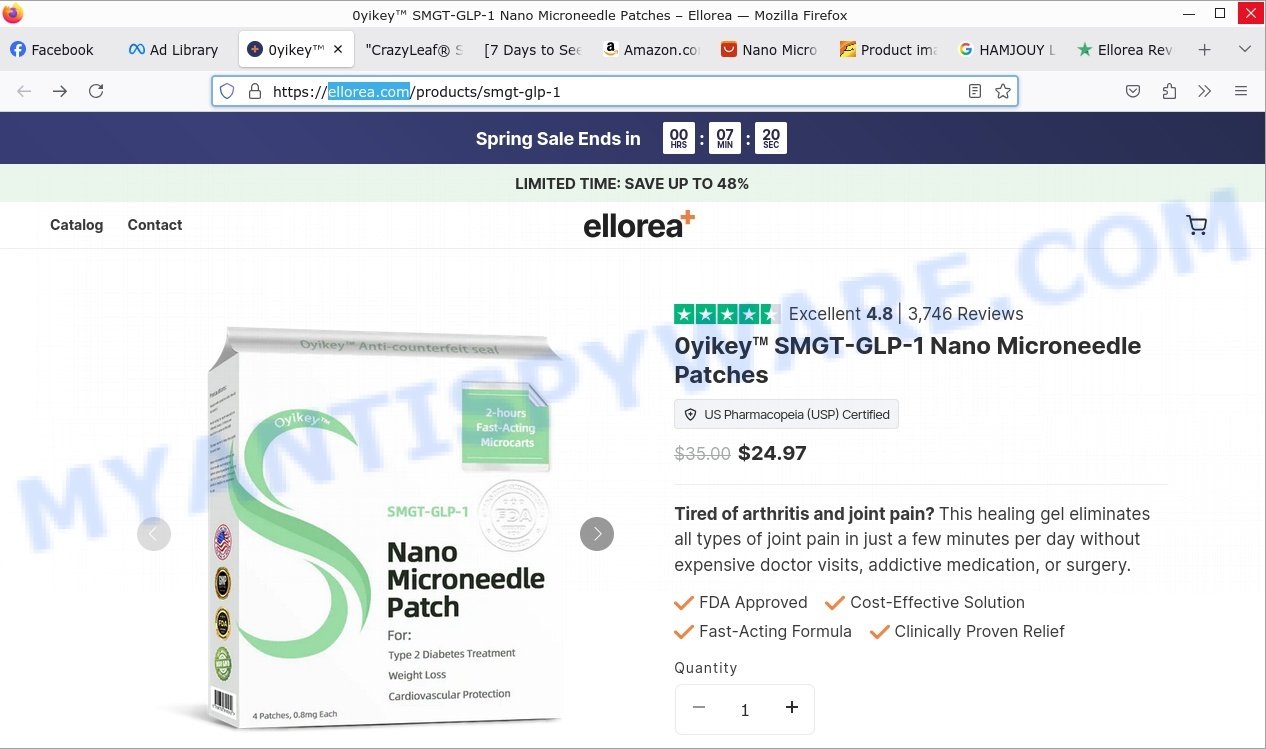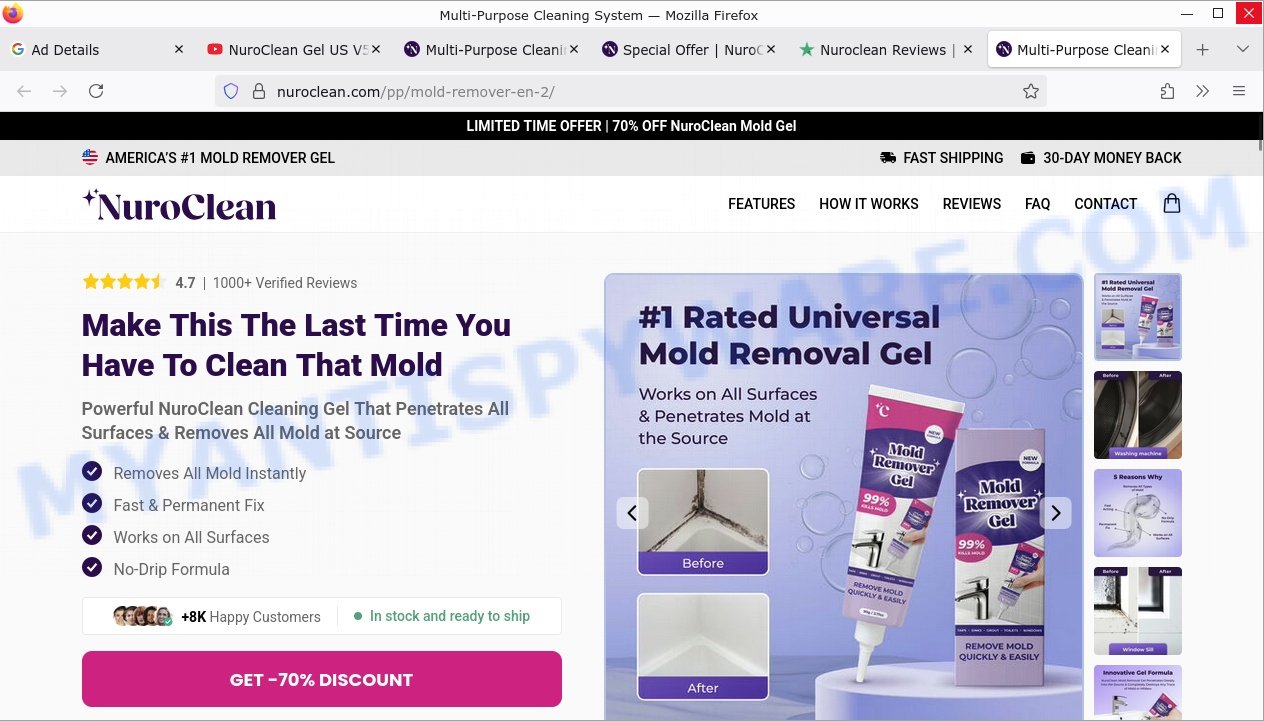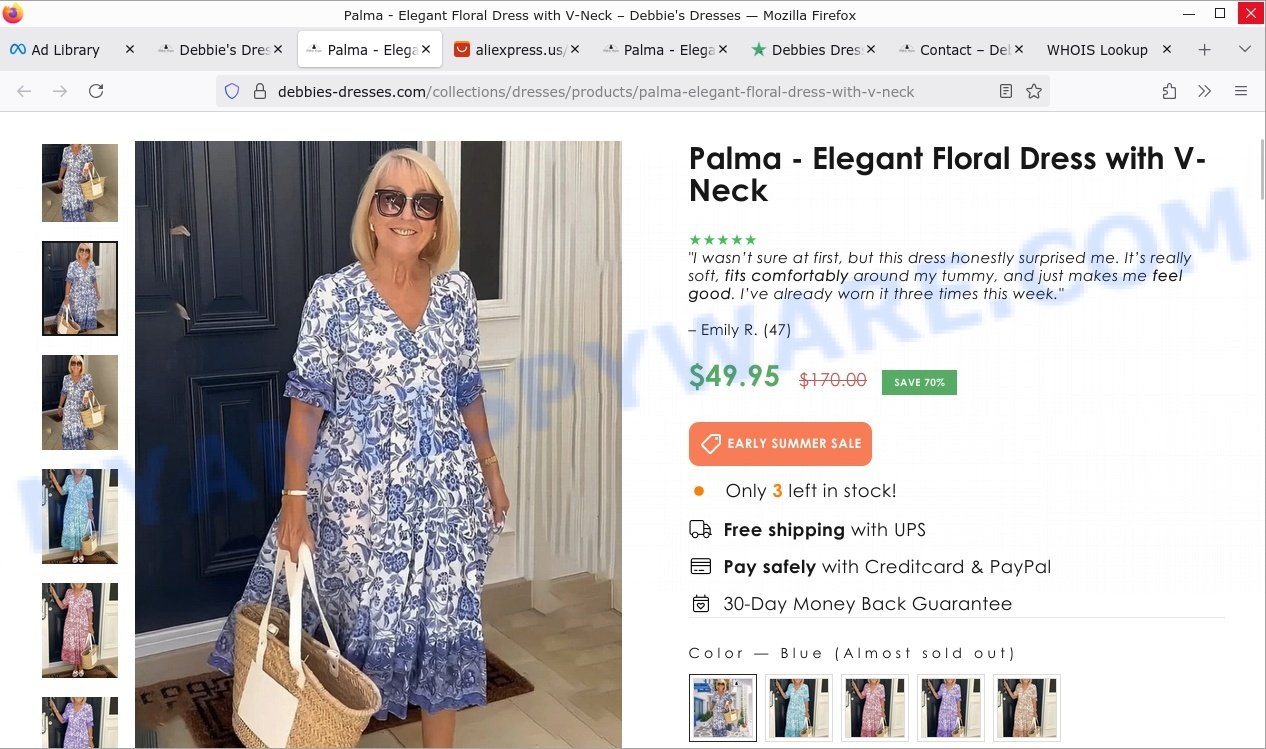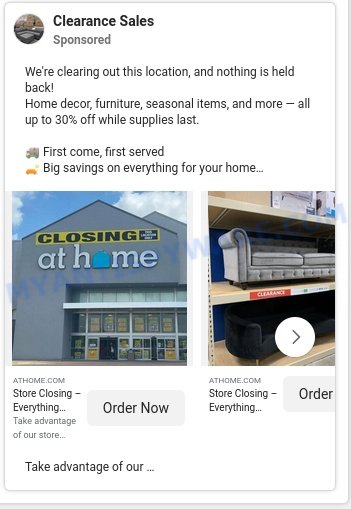Beware of the At Home Store Closing Sale Scam—a fraudulent scheme that exploits At Home’s legitimate bankruptcy and store closures to deceive shoppers with fake online sales. While At Home is genuinely shutting down 30 locations by September 2025 and offering discounts up to 50%, scammers are flooding social media platforms, especially Facebook, with ads that mimic these sales but lead to bogus websites.

Scam ads promote “Clearance Sales” and “Store Closing” events with huge discounts on home decor, furniture, and more—enticing customers to click on links that do not direct to the official ATHOME.COM site. Instead, these links lead to suspicious domains like at-homeclosed.com, featuring copycat storefronts filled with absurdly low prices and clearance offers on popular items.
These fake websites use the At Home logo and boast of “going out of business” deals with unbelievable marks downs, sometimes as high as 90% off. The layouts look professional but contain numerous warning signs: recently created domains with privacy-protected ownership registered overseas (often in China), inconsistent contact information, and promises of “free same day delivery” and exclusive perks that are too good to be true.
Victims who order from these sites often receive nothing, counterfeit goods, or products of inferior quality. Customer service contacts link to generic emails rather than official company channels, and attempts to request refunds typically fail.
If you’re tempted by At Home closing sale ads online, exercise extra caution. Always verify the website URL—only trust ATHOME.COM—and avoid clicking on ads from unknown or suspicious domains. When in doubt, visit the official At Home store page or contact their verified customer service before making any purchases. Protect your hard-earned money by steering clear of these fraudulent “At Home Store Closing” scams disguised as true sales.
💡 Heads-up: Similar Scams Are Everywhere. The At Home Store Closing Sale scam is not unique. It is one of many other schemes we expose in our Fact Checks section. All of them aim to grab your personal data or money. The people behind these scams run slick websites, spread bogus promo codes, and even pose as trusted brands or experts. Below are a few recent scams that follow the same playbook as the At Home Store Closing Sale scam: Lercea Meglutide Drops, NIDDK Tirzepatide Microneedle Patch, My Mobile Machine, HTC NE20 Bluetooth 5.4 Earphones, CrazyLeaf SMGT-GLP-1 Nano Microneedle Patch.
Table of Contents
🚨 Is the At Home Store Closing Sale Real?
The At Home Store Closing Sale scam is a deceptive scheme designed to exploit shoppers looking for genuine discounts during the real closures and liquidation sales of At Home stores. Scammers mimic legitimate announcements and use fake websites to trick consumers into buying products that are either overpriced, counterfeit, or never delivered.
Key Red Flags:
- 🌐 Fake Website Domains: Despite legitimate At Home store closing sales being advertised through official channels at
athome.com, scam ads link to suspicious domains likeat-homeclosed.comwhich impersonate the brand but have no official connection. - 🛒 Unrealistic Discounts: Scam sites promote massive discounts (80-90% off) on high-ticket items that are unrealistically low, indicating bait prices to lure victims into placing orders.
- 📷 Misused Branding and Images: Scam ads feature authentic store images and logos but combine them with “going out of business” banners and exclusive online-only sales, which do not align with legitimate At Home communications.
- 🔄 Suspicious Redirects and Unsecure Payment: Clicking on scam ads often leads users through multiple unrelated domains, with payment gateways that raise security concerns, increasing risk of fraud or stolen data.
- 📅 Recently Registered Domains from Foreign Countries: Scam domains are newly registered (e.g., in 2025) and often list registrants in countries like China, unrelated to the US retailer, suggesting fraudulent intent.
- ❌ Lack of Contact or Legitimate Customer Service: Scam websites provide non-functional or suspicious contact details and fake reviews to create a false sense of credibility.
- ⚠️ Impersonation of Real Store Closures: While At Home is indeed closing some stores as part of Chapter 11 bankruptcy filings, these genuine events are exploited by scammers to mislead shoppers into thinking their scam links and offers are authentic.
🕵️♂️ How the At Home Store Closing Sale Scam Operates
Scammers behind the At Home Store Closing Sale scam start by posting targeted ads and sponsored posts on social media platforms such as Facebook. These ads mimic real promotions of At Home’s legitimate liquidation sales, claiming huge discounts—up to 80-90% off—on furniture, home décor, and seasonal items. Ads often feature images of At Home storefronts with “Closing” or “Going Out of Business” banners, using phrases like “Everything Must Go!” and “Limited Time Online Sale” to create urgency and attract bargain hunters.
When users click these ads, they are redirected not to the official ATHOME.COM website but to fraudulent sites like at-homeclosed.com or similar domains. These scam sites are designed to look nearly identical to the real At Home website, using the company logo, knockoff banners, and extensive catalogs of deeply discounted items to deceive visitors. The domain registrant details are often hidden or trace back to suspicious locations such as China.
These fake stores showcase unbelievably low prices on popular furniture and home goods, sometimes slashing original prices by 80-90%. They claim perks like “FREE Same Day Delivery on Orders Over $49” and use trust signals like “Certified Secure” badges, but these assertions are fabricated. The checkout and customer service processes tend to be opaque, with contact info leading to generic or non-responsive service centers.
A major red flag is the creation of fake reviews and testimonials on these scam sites, portraying dozens or hundreds of highly positive buyer experiences. However, independent review platforms and online forums show either no legitimate feedback or reports from victims who never received their purchased items or found their credit cards charged fraudulently.
After placing an order, victims often experience long shipping delays or no delivery at all. Attempts to get refunds or contact support are met with silence or runaround responses. Some users find unauthorized recurring charges or future upsell attempts for related “exclusive collections” or “membership plans”.
In summary, the At Home Store Closing Sale scam capitalizes on the genuine news of At Home’s bankruptcy and store closures by deploying deceptive social media ads and counterfeit websites. These scams lure consumers into purchasing products that never arrive, resulting in financial loss and frustration. Buyers should always verify announcements and shop only via official At Home domains and trusted retailers to avoid falling victim to this scheme.
😱 What to Do If Scammed
If you find yourself ensnared by the At Home Store Closing Sale Scam, immediate action is crucial. Here’s what you should consider doing:
🛑 Stop Further Transactions
The first step is to halt any additional transactions that might be in process. Contact your bank or credit card provider and inform them that you’ve fallen victim to a scam. They can help by blocking the card or reversing any unauthorized transactions.
📞 Report the Fraud
File a report with your local police and provide all the available evidence, such as screenshots, emails, and website URLs. Additionally, report the scam to online portals like the Better Business Bureau (BBB) at www.bbb.org or the Federal Trade Commission (FTC) at reportfraud.ftc.gov. If you’re in another country, reach out to your national consumer protection agency.
💻 Take Screenshots
Before the scam website gets taken down or changes, make sure to capture screenshots of your transactions and communications. These can serve as evidence if you decide to pursue legal action.
⚖️ Consult Legal Advice
Speak to a legal advisor about your situation. While pursuing legal action may be time-consuming and costly, it could be a possible avenue for recovering your lost money.
📢 Share Your Experience
Use social media platforms to share your experience and warn others about the scam. Your story could prevent someone else from falling victim to the same or similar scams.
Conclusion
The At Home Store Closing Sale Scam exploits the genuine announcement of At Home’s bankruptcy and store closures to trick consumers. While At Home is legitimately closing 30 stores by September 2025 and offering discounts up to 50%, scammers are using this news as a cover for fraudulent clearance sales via fake websites like at-homeclosed.com that mimic the real At Home branding.
These scam sites advertise unbelievably steep discounts (up to 90% off) on home goods and furniture but operate from suspicious domains with privacy-protected ownership often linked to overseas registrants. Importantly, the URLs do not lead to the official At Home website (athome.com) but direct users to fraudulent stores where prices are unrealistically low and products may be counterfeit or never delivered.
Bottom Line: Always verify the legitimacy of store closing sales by checking official sources directly. Genuine At Home sales happen through their verified platform and physical locations, with clear policies and contact information. If an online deal looks too good to be true or the website domain is not the official At Home domain, it is likely a scam designed to steal money or personal data.
Stay cautious and protect yourself by avoiding purchasing from unverified websites claiming to offer At Home closing sale deals. When in doubt, visit the official At Home site or trusted retailers for authentic offers and updates.






















